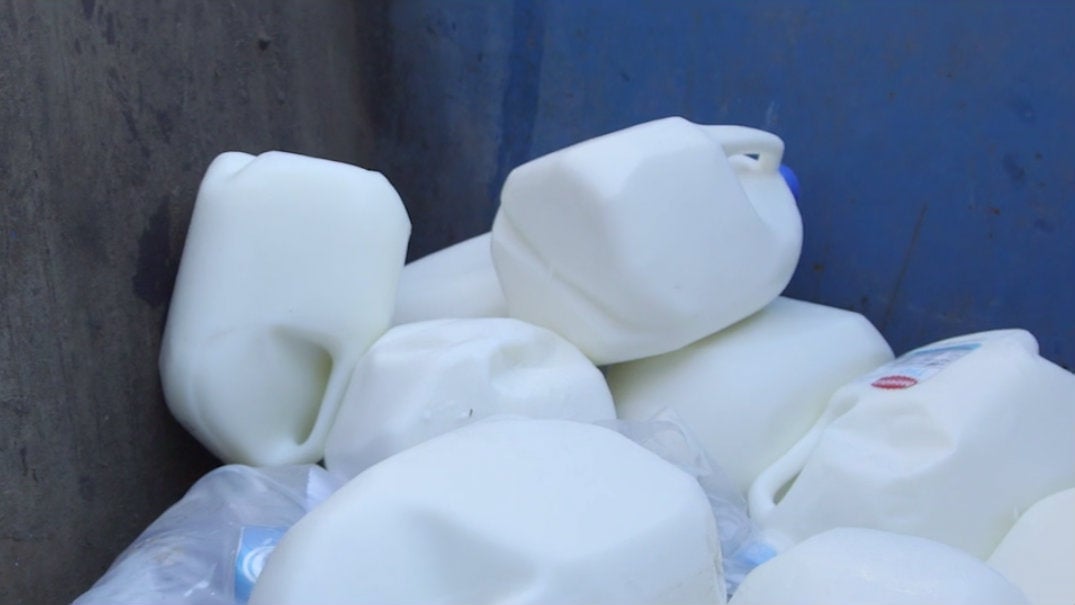Cry: Thousands of gallons of milk are poured down the drain every year, thanks to US state laws
Glug, glug, glug… That’s the sound of milk being poured down the drain in Montana. Montana wastes untold amounts of milk every day due to an outdated law that requires a “sell by” date of 12 days after pasteurization and prohibits sale or donation after that date. This date is completely arbitrary, especially when compared to the industry standard for date labeling on milk—generally 21-24 days after pasteurization. Even more shocking, the date label on milk, like on most foods, is generally meant to indicate quality rather than its safety. Because pasteurization kills any harmful pathogens, milk is safe and generally still good well past the date.


Glug, glug, glug… That’s the sound of milk being poured down the drain in Montana. Montana wastes untold amounts of milk every day due to an outdated law that requires a “sell by” date of 12 days after pasteurization and prohibits sale or donation after that date. This date is completely arbitrary, especially when compared to the industry standard for date labeling on milk—generally 21-24 days after pasteurization. Even more shocking, the date label on milk, like on most foods, is generally meant to indicate quality rather than its safety. Because pasteurization kills any harmful pathogens, milk is safe and generally still good well past the date.
Montana’s is just one of many US state laws that cause confusion and massive amounts of waste. Even if food makes it to a home, more than 90% of Americans report that they mistake those quality dates labels for safety indicators, and subsequently throw away food that is still completely safe to eat. Confusion over date labels is a major contributor to the 160 billion pounds of food wasted each year in the US. The Harvard Food Law and Policy Clinic and Racing Horse Productions produced the film EXPIRED? Food Waste in America to raise awareness about this issue, using Montana milk to illustrate the larger story about senseless food waste in America and highlight the opportunity for reform.
The US is not alone. Globally, 1.3 billion tons of food are wasted annually. 28% of the world’s agricultural land is used to produce food that ends up in landfills, where it releases 3.3 billion tons of greenhouse gas. Luckily, people are starting to pay attention. At the COP21 Paris climate meeting, food waste reduction played a key role in discussions. Earlier this year, at the World Economic Forum, two major food waste announcements were made. One was the launch of “Champions 12.3,” a coalition of 30 private and public entities working to meet the food waste cuts in the UN Sustainable Development Goals. The other was a $130 million investment by the Rockefeller Foundation to reduce food waste.
In 2015, the European Parliament urged member states to pass legislation encouraging food donation, and several nations have done so. France, for example, just passed a law banning large supermarkets from discarding or destroying edible food, and requiring them to donate the food to charity or to farms for use as animal feed. A similar bill is pending in the UK. A key way the EU is making a dent in food waste is via date label standardization. A longstanding EU-wide law requires that packaged foods bear either a “best before” label to indicate quality or a “use by” label to indicate safety.
The US needs a federal law that, similar to the EU system, restricts date labels on our food products to two–a quality-based label and a safety-based one. There is room for improvement, however. Despite the standard labels, each manufacturer in the EU currently decides which of the two labels to use for which foods, creating inconsistencies. One study found that only 25% of yogurts in the UK had a “best before” date and 75% had a “use by” date, despite the fact that yogurt rarely presents a safety risk. Learning from this shortcoming, US law should also create a standard, science-based list of food products required to use the safety label. All other foods should only be allowed to use the quality label.
Setting national standards for date labels can help consumers make better decisions about what to keep and what to toss, and can help retailers determine what foods can be donated or sold at a marked-down price. Luckily, two federal bills two be introduced later this month, one by congresswoman Chellie Pingree of Maine, and the other by senator Richard Blumenthal from Connecticut, propose just these types of reforms.
The USDA and EPA recently announced the first-ever food waste goal for the US—a 50% reduction in food waste by 2030. While the announcement of this goal is an exciting first step, much work is needed to achieve this target. As the US works to reduce food waste, we can benefit from the European example. Standardizing date labels will make a big impact on the countless gallons of milk wasted each year in Montana, and on reducing the senseless waste of all types of healthy, wholesome food throughout the US.